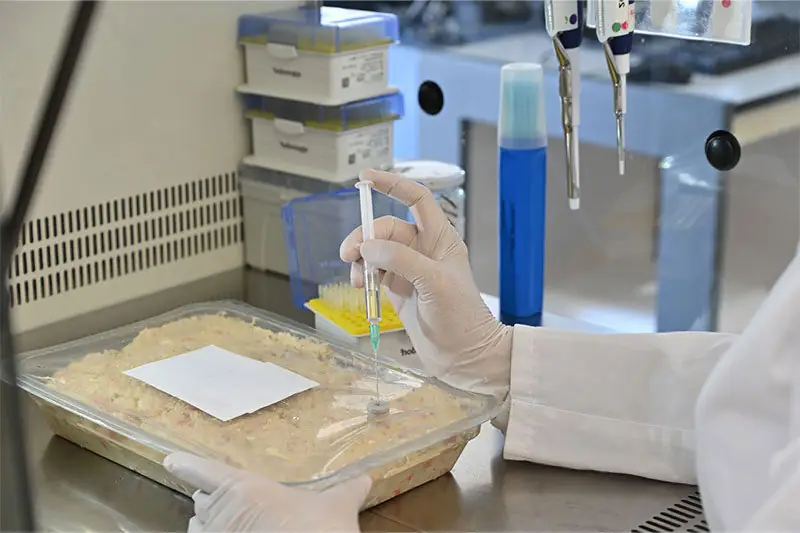Rapid PCR Microbial Detection in Cosmetics
In recent years, microbiological safety testing has become an essential part of ensuring that cosmetic products are safe and free from harmful microorganisms. Traditional microbial detection methods can be time-consuming and labor-intensive, often taking days to provide results. However, with the advent of Polymerase Chain Reaction (PCR) technology, we now offer a rapid PCR microbial detection service specifically tailored for cosmetics.
The PCR technique allows for the amplification of specific DNA sequences from microorganisms present in cosmetic samples. This approach provides quicker and more accurate results compared to traditional culture-based methods. The speed and precision of this method make it particularly advantageous for quality managers, compliance officers, R&D engineers, and procurement teams who require timely data on microbial content.
The PCR process involves several steps: sample preparation, DNA extraction, amplification using primers specific to the target microorganism(s), followed by analysis via gel electrophoresis or real-time PCR. By focusing on key pathogens such as Staphylococcus aureus, Pseudomonas aeruginosa, and other potentially harmful bacteria and fungi, our service ensures that cosmetic products meet stringent regulatory requirements.
The speed of this method is particularly beneficial in the fast-paced world of cosmetics. It allows manufacturers to identify issues early on, enabling them to take corrective actions promptly. This not only enhances product safety but also reduces the risk of recalls or withdrawals from marketplaces.
Our rapid PCR microbial detection service adheres strictly to international standards like ISO 17025 for laboratory accreditation and ISO 26378 for cosmetic microbiological testing. Compliance with these standards ensures that our services meet the highest quality expectations, thereby providing reliable and accurate results.
Applied Standards
| Standard | Description |
|---|---|
| ISO 17025 | Laboratory accreditation ensuring quality management and technical competence. |
| ISO 26378 | Microbiological testing for cosmetics including sampling, analysis, and interpretation. |
| ASTM E1429-07 | Standard test method for enumeration of bacteria in cosmetic products by multiple tube fermentation. |
| EN 389 | Sterilization methods for medical devices, which can be applied analogously to cosmetics. |
Scope and Methodology
| Aspect | Description |
|---|---|
| Sample Preparation | Sampling is conducted according to predefined protocols ensuring representative samples. |
| DNA Extraction | Use of advanced techniques to isolate DNA from the sample without contamination. |
| PCR Amplification | Specific primers designed for target microorganisms, followed by amplification steps. |
| Analysis | Data interpretation using real-time PCR or gel electrophoresis to identify presence and quantity of targeted organisms. |
Customer Impact and Satisfaction
- Faster turnaround times, typically within 48 hours from receipt of the sample.
- More accurate identification of microorganisms compared to traditional methods.
- Increased efficiency in product development cycles allowing for quicker market launches.
- Better resource allocation through early detection and mitigation of quality issues.





